Literary Criticism
Critical Essay - A Writer's Purpose
August/09/2025 05:12 PM Filed: Critical Essays

© Julia Charpentier
What motivates a writer to write? An interesting test reveals an author's purpose more than a carefully phrased answer. After completing a work, create a sample file. Then evaluate common catalysts and temporarily delete this material:
1) Paragraphs or scenes containing violence.
2) Paragraphs or scenes containing sex.
3) References to religious doctrine.
4) References to political ideology.
One stimulus may have saturated a work. Yet the most inspired and talented nonfiction authors build upon a unique foundation, such as experience, passion, and enlightenment. Fiction writers establish intrigue and suspense without gratuitous descriptions flooding the manuscript. Commercial endeavors rely on action and controversy for marketing, resulting in greater reliance on immersion techniques.
A percentage of all test files will be deleted. It is those still intact that have the greatest potential to leave a lasting impression in literature.
Critical Essay - Inner Editor
July/16/2025 04:44 PM Filed: Critical Essays
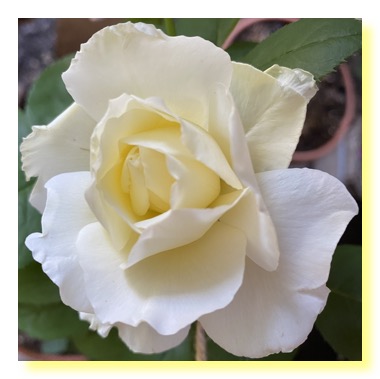
© Julia Charpentier
Like a scene from an archaic novel, meet the inner editor:
It had been years since she had seen the sun. No one had locked her up, no barrier had been placed on her door. Though sunlight streamed through her windows, she no longer felt its warmth or appreciated the intriguing patterns its beams projected on her floor. She lived in self-imposed darkness, grieving for a time that had passed and could not be lived again.
Immersed in the words of a detractor, contemplative and uncertain, she is critical of her world. A long ago place, her place, her only home, now a dimly lit memory faded against these confining walls. Not a home with doors and windows, but a free outdoor space, it was a refuge that thrived under an endless light.
Bask in the sunlight and flourish. Then read my October-November 1992 clip on self-editing published in The Write Touch, a newsletter for authors.
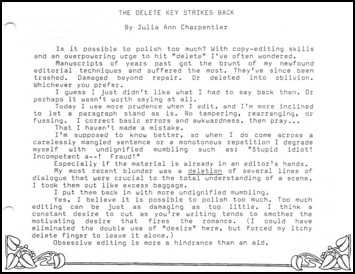
Critical Essay - Romantic Pulp
January/14/2022 02:49 PM Filed: Critical Essays
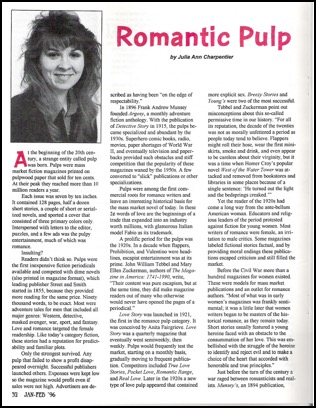
At the beginning of the twentieth century, a strange entity called pulp was born. Read about the historical roots of romance fiction in my January-February 1996 article published in the Romance Writers Report.
Apple Books - Jack London
November/28/2023 11:40 AM Filed: Apple Books
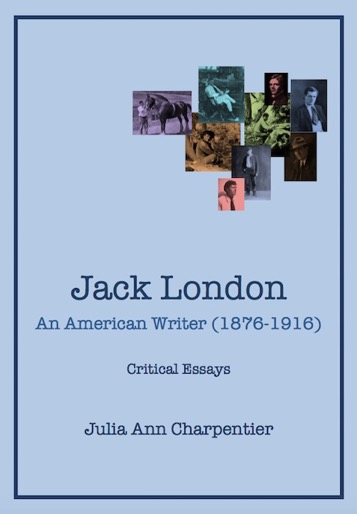
A collection of seven critical essays, JACK LONDON: AN AMERICAN WRITER (1876-1916) reveals a complicated figure with a literary persona and a mass-market image. London rose from a working class background in Oakland, California, to prominence as one of the most famous and prolific authors in the world. Scholars have put him under a literary microscope since his death in 1916. Academics analyze his work, his political views, and his love life in an attempt to distinguish between the private man and the public figure, while modern writers find his creative output daunting. Available December 26, 2023, on Apple Books.
- Quest for Eden
- Psychology and Symbolism
- Structural Significance
- Character and Technique
- Political Rebellion
- Idealism and Worldview
- Private Man and Public Figure
Literary Approach - Freudian Criticism
July/27/2018 08:53 AM Filed: Literary Approaches

Editor: J. Paul Hunter, University of Chicago
(Norton & Company, 1999)
The Norton Introduction to Poetry: Freudian Criticism
University of Chicago professor emeritus J. Paul Hunter defines critical approaches to evaluating poetry and prose in this excellent text published by Norton & Company. The book is now in its ninth edition with contributing editors Alison Booth, University of Virginia, and Kelly J. Mays, University of Nevada.
“Based on the work of Sigmund Freud (1856-1939). Many of its practitioners assert that the meaning of a literary work does not lie on its surface but in the psyche of the author. The value of the work, then, lies in how powerfully and convincingly it expresses the author's unconscious and how universal the psychological elements are.”
A literary work's psychological meaning—conscious or unconscious—depends on the author's objective. Words composed for commercial value cannot be scrutinized for universal truths when monetary considerations and publishing guidelines obscure the mind of the writer. Marketing tactics snuff out genuine components, passion and spirit smothered beneath industry expectations that conflict with original intent.
Literary Approach - Lacanian Criticism
July/26/2018 09:05 AM Filed: Literary Approaches

Editor: J. Paul Hunter, University of Chicago
(Norton & Company, 1999)
The Norton Introduction to Poetry: Lacanian Criticism
University of Chicago professor emeritus J. Paul Hunter defines critical approaches to evaluating poetry and prose in this excellent text published by Norton & Company. The book is now in its ninth edition with contributing editors Alison Booth, University of Virginia, and Kelly J. Mays, University of Nevada.
“Based on the work of Jacques Lacan. Accepting the Oedipal paradigm and the unconscious as the realm of repressed desire, Lacanian psychology conflates these concepts with the deconstructionist emphasis on language as expressing absence—you use a word to represent an absent object but you cannot make it present. The word, then, like the unconscious desire, is something that cannot be fulfilled. Language, reaching out with one word after the other, striving for but never reaching its object, is the arena of desire.”
Famous for a controversial method of psychoanalysis, Lacan can be interpreted like any work of literature. His theories are a manifestation of Western culture and Roman Catholic indoctrination. Repression may spur creative impulses, yet the assumption that words seek a pathway to undefined fulfillment defies credibility.
Literary Approach - Deconstruction
May/08/2018 03:25 PM Filed: Literary Approaches

Editor: J. Paul Hunter, University of Chicago
(Norton & Company, 1999)
The Norton Introduction to Poetry: Deconstruction
University of Chicago professor emeritus J. Paul Hunter defines critical approaches to evaluating poetry and prose in this excellent text published by Norton & Company. The book is now in its ninth edition with contributing editors Alison Booth, University of Virginia, and Kelly J. Mays, University of Nevada.
“Deconstruction takes the observations of structuralism to their logical conclusion, arguing that the elaborate web of semiotic differentiations created by the principle of difference in language means that no text can ultimately have any stable, definite, or discoverable meaning. Its most famous proponent is the French philosopher Jacques Derrida. Many deconstructionists have strong radical political commitments, but the retreat from meaning and denial of clear signification that characterize deconstruction also have affinities with formalism and structuralism. Unlike structuralism it denies that the verbal world adds up to anything coherent, consistent, or meaningful in itself.”
A deconstructionist evaluates a conglomeration of words with a cynical attitude that renders the text meaningless. Interesting to contemplate and difficult to analyze, language cannot be trusted, so nothing ever written is credible to this critic. Any narrative may describe, insinuate, or express, yet no one can fathom the infinite details, connotations, or emotions that remain subject to interpretation. Deconstruction dismantles the notion that a solid foundation exists in linguistics.
Literary Approach - Phenomenological Criticism
March/23/2018 11:35 AM Filed: Literary Approaches

Editor: J. Paul Hunter, University of Chicago
(Norton & Company, 1999)
The Norton Introduction to Poetry: Phenomenological Criticism
University of Chicago professor emeritus J. Paul Hunter defines critical approaches to evaluating poetry and prose in this excellent text published by Norton & Company. The book is now in its ninth edition with contributing editors Alison Booth, University of Virginia, and Kelly J. Mays, University of Nevada.
“Another kind of subjectivist criticism. These critics consider all the writings of an author as the expression of his or her mind-set or way of looking at reality. Such a critic looks for repeated or obsessive use of certain key words, incidents, patterns, and angles of vision, and, using these, maps out thereby the inner world of the writer.”
A revealing examination of an author's worldview, this approach is reliable within an artistic medium but not a commercial market. Monetary considerations may influence the act of creation, skewing an accurate analysis. The phenomenological critic appeals to academics. Immersion in this method can be obsessive in itself, for repetition in a writer's work is often due to poor editing rather than a deep-seated vision.
Literary Approach - Pluralism
February/13/2018 02:47 PM Filed: Literary Approaches

Editor: J. Paul Hunter, University of Chicago
(Norton & Company, 1999)
The Norton Introduction to Poetry: Pluralism
University of Chicago professor emeritus J. Paul Hunter defines critical approaches to evaluating poetry and prose in this excellent text published by Norton & Company. The book is now in its ninth edition with contributing editors Alison Booth, University of Virginia, and Kelly J. Mays, University of Nevada.
“Many approaches overlap. Pluralists contend that they make use of promising insights or methods wherever they find them and argue that putting together the values of different approaches leads to a fairer and more balanced view of texts and their uses.”
Like any scientific or artistic inquiry, the method used is at an individual's discretion. Rather than asserting that one approach has value over another, a pluralist scrutinizes a text from various angles, even opposing viewpoints, to create a broader perspective than a limited school of thought can accomplish. The result may be enlightening or contradictory, an impression created at the critic's volition.
Literary Approach - Psychological Criticism
November/28/2017 04:04 PM Filed: Literary Approaches

Editor: J. Paul Hunter, University of Chicago
(Norton & Company, 1999)
The Norton Introduction to Poetry: Psychological Criticism
University of Chicago professor emeritus J. Paul Hunter defines critical approaches to evaluating poetry and prose in this excellent text published by Norton & Company. The book is now in its ninth edition with contributing editors Alison Booth, University of Virginia, and Kelly J. Mays, University of Nevada.
“The assumption is that literature is the expression of the author's psyche, often his or her unconscious, and, like dreams, needs to be interpreted.”
Monetary goals override sincere literary expression, especially in commercial fiction. Book publishers and magazine editors slant material toward predetermined readers, rendering interpretation worthless. Unless an author has maintained creative control and not intentionally written for a specific market, any work is a product guided by economic motivation.
Literary Approach - Subjectivism
October/23/2017 04:58 PM Filed: Literary Approaches

Editor: J. Paul Hunter, University of Chicago
(Norton & Company, 1999)
The Norton Introduction to Poetry: Subjectivism
University of Chicago professor emeritus J. Paul Hunter defines critical approaches to evaluating poetry and prose in this excellent text published by Norton & Company. The book is now in its ninth edition with contributing editors Alison Booth, University of Virginia, and Kelly J. Mays, University of Nevada.
“This loose term can be used to embrace many forms of psychological and self-, subject-, or reader-centered criticism.”
The subjectivist critic evaluates a text through an exclusive lens. Built on a specific belief and guided interpretation, these predetermined elements form the foundation for analysis. Cemented in religion, psychology, or philosophy, the review may be biased, political, self-serving, or enlightening. This method defies what an objectivist strives to accomplish.
Literary Approach - Objectivism
September/19/2017 11:46 AM Filed: Literary Approaches

Editor: J. Paul Hunter, University of Chicago
(Norton & Company, 1999)
The Norton Introduction to Poetry: Objectivism
University of Chicago professor emeritus J. Paul Hunter defines critical approaches to evaluating poetry and prose in this excellent text published by Norton & Company. The book is now in its ninth edition with contributing editors Alison Booth, University of Virginia, and Kelly J. Mays, University of Nevada.
“Objectivist critics believe that a text is an independent object, free from the subjectivity of author and reader.”
An author's ability to write without the influence of emotion and experience requires discipline. A reader's tendency to project philosophical beliefs and to analyze must be restrained. If accomplished, then objectivism is possible, taking interpretive power away from the reviewer. This type of criticism holds value, but remains difficult to implement even among journalists. A writer's words may carry a passionate charge, yet the text is removed from the creator's private world.
Literary Approach - Dialogism
August/15/2017 04:36 PM Filed: Literary Approaches

Editor: J. Paul Hunter, University of Chicago
(Norton & Company, 1999)
The Norton Introduction to Poetry: Dialogism
University of Chicago professor emeritus J. Paul Hunter defines critical approaches to evaluating poetry and prose in this excellent text published by Norton & Company. The book is now in its ninth edition with contributing editors Alison Booth, University of Virginia, and Kelly J. Mays, University of Nevada.
“Based on the work of Mikhail Bakhtin (1895-1975). The dialogic critic bases the study of language and literature on the individual utterance, taking into account the specific time, the place, the speaker, and the listener or reader. Because the dialogic sees utterances, including literary utterances or works, as specific to a time and place, one of its dimensions, unlike formalist, structuralist, or psychological criticism, is historical. Nineteenth-century historical criticism took the obvious fact that a work is created in a specific historical and cultural context and that the author is a part of that context in order to treat literature as a product of culture.”
Dialogism analyzes literature while considering the historical period and the place in which it was written. This critic delves into peripherals of an author's world, rather than focusing on text as an independent entity in a structured or pre-ordered manner. The writer is a contributor within a particular culture.
Literary Approach - Post-Structuralism
July/21/2017 03:02 PM Filed: Literary Approaches

Editor: J. Paul Hunter, University of Chicago
(Norton & Company, 1999)
The Norton Introduction to Poetry: Post-Structuralism
University of Chicago professor emeritus J. Paul Hunter defines critical approaches to evaluating poetry and prose in this excellent text published by Norton & Company. The book is now in its ninth edition with contributing editors Alison Booth, University of Virginia, and Kelly J. Mays, University of Nevada.
”The broad term used to designate the several directions of literary criticism that, while depending crucially on the insights of science-based theory, attack the very idea that any kind of certitude can exist about the meaning, understandability, or shareability of texts. Post-structuralists, disturbed at the optimism of positivist philosophy in suggesting that the world is knowable and explainable, ultimately doubt the possibility of certainties of any kind, and they see language as especially elusive and unfaithful."
Post-structuralists examine the way an author uses language, while simultaneously doubting the viability of literary analysis. These skeptics question the process of defining literature, and to a certain extent, render the critique itself worthless. An odd approach, especially to a decisive scholar firmly embedded in a particular school of thought, yet post-structuralism appeals to intellectuals who accept the ambiguity of our contemporary world.
Literary Approach - Structuralism
July/17/2017 04:29 PM Filed: Literary Approaches

Editor: J. Paul Hunter, University of Chicago
(Norton & Company, 1999)
The Norton Introduction to Poetry: Structuralism
University of Chicago professor emeritus J. Paul Hunter defines critical approaches to evaluating poetry and prose in this excellent text published by Norton & Company. The book is now in its ninth edition with contributing editors Alison Booth, University of Virginia, and Kelly J. Mays, University of Nevada.
“For many formalists, literature is not referential. The words in a story, poem, or play no longer point outward to things, people, or the world they are supposed to denote, but point inward to each other and to the formal system they create. Structuralism focuses on the text as an independent aesthetic object and also tends to detach literature from history and social and political implications, but structuralism emphasizes systematic analysis, aspiring to make literary criticism a branch of scientific inquiry. It sees every literary work as a separate system. Structuralism has its roots in modern linguistic theory; it looks especially to the work of Ferdinand de Saussure (1857-1913), who founded structural linguistics in the early twentieth century. Flourished internationally in the early 1960s. Like formalism, it shows little interest in the creative process as such and has virtually no interest in authors, their intentions, or the circumstances or contents of criticism.”
Structuralism puts an author's words under a literary microscope. It is the language itself and the way it is used that a critic examines rather than exposing the work to interpretive analysis. Personal ideals and historical concepts no longer bask under a spotlight. A story or poem stands on its own without the backdrop of contrived evaluation. This formal method utilizes organized inquiry opposed to subjective scrutiny.
Literary Approach - New Historicism
June/28/2017 03:12 PM Filed: Literary Approaches

Editor: J. Paul Hunter, University of Chicago
(Norton & Company, 1999)
The Norton Introduction to Poetry: New Historicism
University of Chicago professor emeritus J. Paul Hunter defines critical approaches to evaluating poetry and prose in this excellent text published by Norton & Company. The book is now in its ninth edition with contributing editors Alison Booth, University of Virginia, and Kelly J. Mays, University of Nevada.
“New historicism has less obvious ideological commitments than Marxism or feminism, but it shares their interest in the investigation of how power is distributed and used in different cultures. New historicism wishes to isolate the fundamental values in texts and cultures, and it regards texts both as evidence of basic cultural patterns and as forces in cultural and social change. 'Popular literature' often gets major attention.”
Analysis of mass-market fiction and poetry may evaluate cultural progress. Thought-provoking, yet dubious, this method of criticism casts a spotlight on injustice by examining an author's words. A creative endeavor reveals more than underlying class warfare. New historicism reduces a literary work to a social barometer.
Literary Approach - Marxist Criticism
June/09/2017 03:09 PM Filed: Literary Approaches

Editor: J. Paul Hunter, University of Chicago
(Norton & Company, 1999)
The Norton Introduction to Poetry: Marxist Criticism
University of Chicago professor emeritus J. Paul Hunter defines critical approaches to evaluating poetry and prose in this excellent text published by Norton & Company. The book is now in its ninth edition with contributing editors Alison Booth, University of Virginia, and Kelly J. Mays, University of Nevada.
“Based on the work of Karl Marx (1818-1883). Marxist criticism treated literature as a passive product of the culture, specifically of the economic aspect, and, therefore, of class warfare. Economics, the underlying cause of history, was thus the base, and culture, including literature and other arts, the superstructure. Viewed from the Marxist perspective, the literary works of a period would, then, reveal the state of the struggle between classes in the historical place and moment.”
A vestige from the communist era, Marxist criticism explores the economic dynamics behind every social and artistic institution. Marxists believed pursuit of money and class structure governed daily interactions in all walks of life. Literature, thought of as a reflection of strife, yielded information useful in gauging a presumed power struggle, often political in tone.
Literary Approach - Jungian Criticism
May/19/2017 01:02 PM Filed: Literary Approaches

Editor: J. Paul Hunter, University of Chicago
(Norton & Company, 1999)
The Norton Introduction to Poetry: Jungian Criticism
University of Chicago professor emeritus J. Paul Hunter defines critical approaches to evaluating poetry and prose in this excellent text published by Norton & Company. The book is now in its ninth edition with contributing editors Alison Booth, University of Virginia, and Kelly J. Mays, University of Nevada.
“Based on the work of Carl Gustav Jung (1875-1961). The Jungian critic assumes that we all share a universal or collective unconscious (as well as having a racial and individual conscious). According to Jung and his followers, in the collective and in our individual unconscious are universal images, patterns, and forms of human experiences, or archetypes. These archetypes surface in art in an imperfect, shadowy way, taking the form of archetypal images.”
Jung asserts that artistic endeavors lead to creation of stereotypes—images or characters manifested in universally familiar forms. Appealing to the innovative and analytical, his work emphasizes shared human experience. His concept of a collective unconscious may be disputed, yet the presence of archetypes in literature and poetry cannot be denied. From virtuous paragons to evil embodiments, similarities exist across the centuries, evident in all civilizations.
Literary Approach - Feminist Criticism
May/02/2017 09:17 AM Filed: Literary Approaches

Editor: J. Paul Hunter, University of Chicago
(Norton & Company, 1999)
The Norton Introduction to Poetry: Feminist Criticism
University of Chicago professor emeritus J. Paul Hunter defines critical approaches to evaluating poetry and prose in this excellent text published by Norton & Company. The book is now in its ninth edition with contributing editors Alison Booth, University of Virginia, and Kelly J. Mays, University of Nevada.
“Feminist criticism derives from firm political and ideological commitments and insists that literature both reflects and influences human behavior in the larger world. Feminist thought endeavors both to extend contemporary attention to distinctively female concerns, ideas, and accomplishments and to recover the largely unrecorded and unknown history of women in earlier times.”
A feminist perspective is unique, but the detachment of a woman's interests from the mainstream can be limiting. The implication that female concerns belong in a distinct academic sphere restrains the long-term progression toward equality. Steeped in centuries of cultural and religious indoctrination, feminist studies reinforce the belief that a woman's world remains separated from a man's domain.
Literary Approach - Formalism
April/18/2017 01:03 PM Filed: Literary Approaches

Editor: J. Paul Hunter, University of Chicago
(Norton & Company, 1999)
The Norton Introduction to Poetry: Formalism
University of Chicago professor emeritus J. Paul Hunter defines critical approaches to evaluating poetry and prose in this excellent text published by Norton & Company. The book is now in its ninth edition with contributing editors Alison Booth, University of Virginia, and Kelly J. Mays, University of Nevada.
“One common formalist conception is that a work is autotelic, that is, complete in itself, written for its own sake, and unified by its form—that which makes it a work of art. Content is less important than form. Literature involves a special kind of language that sets it apart from merely utilitarian writing; the formal strategies that organize and animate that language elevate literature and give it a special, almost religious character.”
Words placed strategically focus on mode of expression rather than message or content. Understatement and overstatement emphasize style, each technique a literary contrivance. A formalist may not care whether a paragraph makes sense. The artistic merit of a writer's work remains paramount. Ornate prose flaunts; sparse discourse conceals—both display an artificial use of language.
Literary Approach - Reader-Response Criticism
April/10/2017 01:52 PM Filed: Literary Approaches

Editor: J. Paul Hunter, University of Chicago
(Norton & Company, 1999)
The Norton Introduction to Poetry: Reader-Response Criticism
University of Chicago professor emeritus J. Paul Hunter defines critical approaches to evaluating poetry and prose in this excellent text published by Norton & Company. The book is now in its ninth edition with contributing editors Alison Booth, University of Virginia, and Kelly J. Mays, University of Nevada.
“The conventional notion of reading is that a writer or speaker has an ‘idea,’ encodes it—that is, turns it into words—and the reader or listener decodes it, deriving, when successful, the writer/speaker’s ‘idea.’ The critic follows the text sequentially (such as in a novel), observing what expectations are being aroused, how they are being satisfied or modified, how the reader recapitulates ‘evidence’ from the portion of the text he has read to project forward a configuration, a tentative assumption of what the work as a whole will be and mean once it is done. The expectations are in part built by the text and in part by the repertoire of the reader—that is, the reader’s reading experience plus his or her social and cultural knowledge.”
Interpretation of words unveils reader perception. Subjected to belief and assumption, critique of a literary work can promote a philosophical view far removed from the writer’s intent—a world foreign to the author, familiar to the critic. Academic communities foster objective scrutiny of fiction and poetry. Complete detachment may be impossible.
Literary Approach - Sociological Criticism
March/28/2017 10:05 PM Filed: Literary Approaches

Editor: J. Paul Hunter, University of Chicago
(Norton & Company, 1999)
The Norton Introduction to Poetry: Sociological Criticism
University of Chicago professor emeritus J. Paul Hunter defines critical approaches to evaluating poetry and prose in this excellent text published by Norton & Company. The book is now in its ninth edition with contributing editors Alison Booth, University of Virginia, and Kelly J. Mays, University of Nevada.
“Literature is seen as one aspect of the larger processes of history, especially those processes involving people acting in social groups or as members of social institutions or movements. Sociological criticism assumes that the most significant aspects of human beings are social and that the most important functions of literature thus involve the way that literature both portrays and influences human interactions. Much sociological criticism centers its attention on contemporary life and texts, seeking to affect both societal directions and literary ones in the present, but some sociological criticism is historical, concerned with differences in different times and places, and anxious to interpret directions of literature in terms of historical emphases and patterns.”
Sociology is the study of people with differing cultural, philosophical, and religious beliefs. The application of this technique to literature spotlights contradictory concepts in past and present society, seeking to explain human behavior in groups. Interpretation exposes the scrutinized words and may reveal a biased motive in the poem or story.
Shakespeare - Moral Value
November/16/2016 01:21 PM Filed: Shakespeare

Credit: Brice Stratford
(Wikimedia Commons)
Shakespeare: Moral Value
“Shakespeare and the Renaissance Concept of Honor” is based on a thesis presented to Harvard University in 1950. Curtis Brown Watson divides his work into two parts. The first discusses the Renaissance idea of honor, the second addresses William Shakespeare’s use of this concept.
A good source that presents original analysis, this study is essential for students of history and English literature. Published by Princeton University Press in 1960, the text is important to understand the definition of honor in Shakespeare’s time and encourages the scholar to develop an independent interpretation of the playwright’s work.
Watson provides a list of seven critical approaches in “Foreword to Part II: Does Drama Have a Moral Function?” He invites us to judge which position has the greatest relevance.
7. “It is impossible to understand Shakespeare if one does not consider the moral values which gave his plays their structure and meaning. In Shakespeare there is a profound interpenetration of moral and of aesthetic values.”
Watson believes any attempt to separate Shakespeare from the time in which he lived while analyzing the playwright’s work will lead to invalid statements and a thesis based on present attitudes and contemporary class structure. Moral issues pertaining to English Renaissance society cannot be ignored.
Women were not permitted to appear on stage, much less allowed to interpret a writer’s words, or assume the duties of a man. Today, women perform and critique Shakespeare in great numbers, revitalizing our perspective. Feminism has modernized literary criticism, making it impossible to stay within the moral values of the Renaissance.
Shakespeare - Allegory and Symbolism
November/10/2016 04:29 PM Filed: Shakespeare

Credit: Brice Stratford
(Wikimedia Commons)
Shakespeare: Allegory and Symbolism
“Shakespeare and the Renaissance Concept of Honor” is based on a thesis presented to Harvard University in 1950. Curtis Brown Watson divides his work into two parts. The first discusses the Renaissance idea of honor, the second addresses William Shakespeare’s use of this concept.
A good source that presents original analysis, this study is essential for students of history and English literature. Published by Princeton University Press in 1960, the text is important to understand the definition of honor in Shakespeare’s time and encourages the scholar to develop an independent interpretation of the playwright’s work.
Watson provides a list of seven critical approaches in “Foreword to Part II: Does Drama Have a Moral Function?” He invites us to judge which position has the greatest relevance.
6. “Part of Shakespeare’s greatness lies in his ambiguity. Therefore we can consider his plays a rich mine for a wide variety of interpretation of ‘meaning’ and ‘pattern.’ The critic should seek for allegory and symbolism and thus discover meanings which will be suggestive, though not necessarily definitive or final.”
Not everyone values vagueness. For a critic, an ambiguous work is a blank page waiting to be filled. The more interpretations that can be gleaned from a play, the better it is for an academic. Some scholars carry this procedure to an extreme, reaching for symbols and allegories where none exist.
All literature is potentially ambivalent. Life itself is contradictory with hidden meaning. A savvy reader must be aware that every piece of criticism is as much a statement of the pundit’s personality as it is a valid interpretation.
The lack of finality, the never-ending hashing over of any writer’s words, does nothing but provoke new criticism and encourage new scholars. As time passes, the accumulation of material on Shakespeare has become overwhelming, even intimidating, giving the impression that his work is incomprehensible to the majority. Shakespeare wrote for the majority. It is only today that he has been classified as a literary, opposed to a commercial, playwright. Looking for meanings that are suggestive, though not definitive, is an activity engaged in by colleges and universities.
Shakespeare - Meaning and Interpretation
November/08/2016 02:19 PM Filed: Shakespeare

Credit: Brice Stratford
(Wikimedia Commons)
Shakespeare: Meaning and Interpretation
“Shakespeare and the Renaissance Concept of Honor” is based on a thesis presented to Harvard University in 1950. Curtis Brown Watson divides his work into two parts. The first discusses the Renaissance idea of honor, the second addresses William Shakespeare’s use of this concept.
A good source that presents original analysis, this study is essential for students of history and English literature. Published by Princeton University Press in 1960, the text is important to understand the definition of honor in Shakespeare’s time and encourages the scholar to develop an independent interpretation of the playwright’s work.
Watson provides a list of seven critical approaches in “Foreword to Part II: Does Drama Have a Moral Function?” He invites us to judge which position has the greatest relevance.
5. “The ‘meaning’ of Shakespeare’s plays changes in accordance with the preconceptions and bias of each new generation of readers. The ‘meaning’ is subjective, not objective.”
Every academic since the English Renaissance has sought meaning in Shakespeare’s work. All find it, and all are right, from a limited standpoint. When a critic searches for a message, a moral, or a purpose in a piece of literature, the quest will lead to a treasure. This treasure may be self-created, but it has value to those who respect literary analysis.
A new generation brings a fresh outlook on life, applied to everything from food to Shakespeare. A so-called objective reader is filled with ideas and attitudes that color the material, and when this work is filtered through a selected lens, distortions, both good and bad, result.
This process is comparable to a cameraman regarding a scene he wants to film for a specific reason. He will choose an angle, add or remove light, and often apply a filter to create the desired effect. In the end, this scenario will be the cinematographer’s work of art, not a naked view of what he captured with his camera.
All criticism of Shakespeare is subjective, based on cultural, religious, and educational background.
Shakespeare - Tragedy and Religion
November/03/2016 01:45 PM Filed: Shakespeare

Credit: Brice Stratford
(Wikimedia Commons)
Shakespeare: Tragedy and Religion
“Shakespeare and the Renaissance Concept of Honor” is based on a thesis presented to Harvard University in 1950. Curtis Brown Watson divides his work into two parts. The first discusses the Renaissance idea of honor, the second addresses William Shakespeare’s use of this concept.
A good source that presents original analysis, this study is essential for students of history and English literature. Published by Princeton University Press in 1960, the text is important to understand the definition of honor in Shakespeare’s time and encourages the scholar to develop an independent interpretation of the playwright’s work.
Watson provides a list of seven critical approaches in “Foreword to Part II: Does Drama Have a Moral Function?” He invites us to judge which position has the greatest relevance.
4. “Religious values are absent from Shakespearean tragedy since the tragic view and the religious view are incompatible.”
One issue that makes the tragic view and the religious view incompatible is suicide. From a Christian standpoint, killing oneself is a sin, inconsistent with church doctrine. Self-destruction depicted as noble or admirable is perceived as the ultimate cowardice. In this sense, a tragedy cannot be religious in the Western world.
Since most critics who analyze Shakespeare are Western in culture and belief, the term “religious” will often be synonymous with “Christian.” The tragic element can be lessened if a writer approaches the suicidal character with condemnation, yet Shakespeare was not inclined to do this. He presents a story in a straightforward manner without judging every action, making a scriptural view difficult to maintain.
Shakespeare - Christianity and the Renaissance
November/01/2016 04:05 PM Filed: Shakespeare

Credit: Brice Stratford
(Wikimedia Commons)
Shakespeare: Christianity and the Renaissance
“Shakespeare and the Renaissance Concept of Honor” is based on a thesis presented to Harvard University in 1950. Curtis Brown Watson divides his work into two parts. The first discusses the Renaissance idea of honor, the second addresses William Shakespeare’s use of this concept.
A good source that presents original analysis, this study is essential for students of history and English literature. Published by Princeton University Press in 1960, the text is important to understand the definition of honor in Shakespeare’s time and encourages the scholar to develop an independent interpretation of the playwright’s work.
Watson provides a list of seven critical approaches in “Foreword to Part II: Does Drama Have a Moral Function?” He invites us to judge which position has the greatest relevance.
3. “The Renaissance was a Christian age. Therefore Shakespeare, like every other writer of his age, must have been profoundly influenced by Christianity.”
Since Christianity had a tight hold on the morals of the Renaissance, often counterproductive to advancement in the arts and sciences, Shakespeare would have felt an inhibiting impact. The conflicts of the Reformation would have helped him portray interesting, diverse characters and tension-filled scenes, but the church would have been a hindrance, not an aid, to creative achievement. As he wrote, he sought ways to express himself without offending people or inviting censorship.
Euphemism, an affected though ornate way of writing, was one stylistic method. John Lyly started this tradition. Shakespeare learned from Lyly and applied this technique. Although the use of flowery, suggestive phrases with a distinct, rhythmic sound is far more pronounced in Lyly’s plays and novels, its application in Shakespeare’s material is noticeable. Euphemism made it possible for a playwright to say anything, even describe sexual acts, by the strategic placement of words. Only the educated would have understood, one reason why no one stopped careful writers in an age of prudish restraint.
Scholars who incorporate religious beliefs in the interpretation of Shakespeare’s work are making a mistake. In the development of a scene, Shakespeare would have been capable of seeing a situation from the viewpoint of a Christian or an atheist based on the needs of his plot.
Shakespeare - Philosophical Value
October/27/2016 11:25 PM Filed: Shakespeare

Credit: Brice Stratford
(Wikimedia Commons)
Shakespeare: Philosophical Value
“Shakespeare and the Renaissance Concept of Honor” is based on a thesis presented to Harvard University in 1950. Curtis Brown Watson divides his work into two parts. The first discusses the Renaissance idea of honor, the second addresses William Shakespeare’s use of this concept.
A good source that presents original analysis, this study is essential for students of history and English literature. Published by Princeton University Press in 1960, the text is important to understand the definition of honor in Shakespeare’s time and encourages the scholar to develop an independent interpretation of the playwright’s work.
Watson provides a list of seven critical approaches in “Foreword to Part II: Does Drama Have a Moral Function?” He invites us to judge which position has the greatest relevance.
2. “Since Shakespeare was not a philosopher, he was not concerned with questions of value.”
Shakespeare explored questions of value as they relate to his plays and the portrayal of his characters. Even a story that attempts to avoid any philosophical statement makes one in the act of refraining. It is impossible for a writer to put an idea to paper without consciously or subconsciously weaving buried notions and perceptions into the fabric of the plot. A playwright might make a divergent assertion, or through the vivid depiction of a protagonist, take a social stance.
The tougher the character—the stronger the impact—the deeper the meaning. Scholars may disagree on what his connotations imply, but messages are threaded throughout Shakespeare’s dramatic words. Like fine gold filament that catches the eye, his hidden nuances invite philosophical pondering.
Shakespeare - Point of View
October/25/2016 10:38 PM Filed: Shakespeare

Credit: Brice Stratford
(Wikimedia Commons)
Shakespeare: Point of View
“Shakespeare and the Renaissance Concept of Honor” is based on a thesis presented to Harvard University in 1950. Curtis Brown Watson divides his work into two parts. The first discusses the Renaissance idea of honor, the second addresses William Shakespeare’s use of this concept.
A good source that presents original analysis, this study is essential for students of history and English literature. Published by Princeton University Press in 1960, the text is important to understand the definition of honor in Shakespeare’s time and encourages the scholar to develop an independent interpretation of the playwright’s work.
Watson provides a list of seven critical approaches in “Foreword to Part II: Does Drama Have a Moral Function?” He invites us to judge which position has the greatest relevance.
1. “Shakespeare was an objective dramatist who tried to describe every aspect of the human scene without committing himself to the point of view of any of his dramatic creations.”
Although Shakespeare may have written objectively, it would have been impossible to portray a character without committing himself to a point of view. Understanding the motivation behind a protagonist’s actions is essential to a playwright’s success. This does not mean that a writer must empathize with a villain, but lifelike presentation involves the ability to understand the reasons behind immoral behavior.
Shakespeare portrayed historical and tragic figures with realism. He desired to make these remote individuals accessible for the duration of a play. The average theater patron of the Renaissance went to see his productions for the entertainment alone. If Shakespeare had not committed himself to the viewpoints of his notable characters, his fame would have been short-lived.
Literary Perspective - Symbolism
October/13/2016 01:29 PM Filed: Literary Perspectives

Credit: Outlook Co.
(Wikimedia Commons)
Symbolism
A literary symbol is a material object that takes on psychological significance, whereas a metaphor involves the comparison of an entity, a place, or an event to a personality or a character’s behavior. Critics agree on definition, but an individual may evaluate a work of fiction and come up with a unique opinion, rather than a written-in-stone analysis.
In a story, the protagonist makes decisions influenced by the dominance of this symbol.
Literary Perspective - Women in Rebellion
October/13/2016 11:11 AM Filed: Literary Perspectives
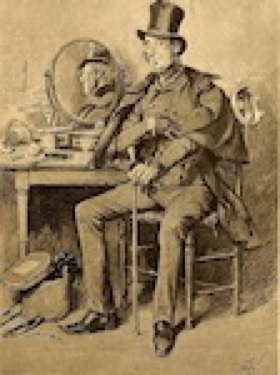
Credit: E. Hess
(Wikimedia Commons)
Women in Rebellion
As the women’s movement progressed from gaining the right to vote to acquiring freedom to pursue a career, reactions to equal status have not always been positive. Stereotypical problems include difficulty in combining a job and motherhood, fear of losing femininity, and desire to cling to indoctrinated roles.
Strangely, a woman sometimes rebels against patriarchal authority by rejecting independence rather than accepting it. Every decade she fights new battles and acquires political ground, while a traditional archenemy yanks her back.
In feminist literature, a patriarch can be any man—a minister, a father, a husband—even men in general. Although the device may be overdone, this technique is effectively used to address sensitive gender issues. In fiction, as in life, women can be their own worst enemies by not communicating, leading to lack of courage and assertiveness.
Literary Perspective - Turbulence Beneath the Calm
October/13/2016 10:32 AM Filed: Literary Perspectives
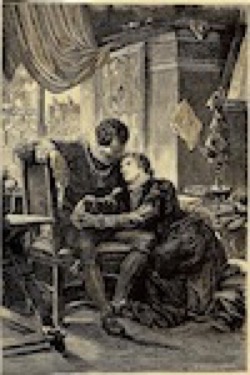
Credit: E. Hess
(Wikimedia Commons)
Turbulence Beneath the Calm
Women in transition are often portrayed with a calm demeanor in literary stories. Disputes remain low-key or nonexistent, unlike mass-market fiction in which arguments escalate to violence. These scenarios present exaggerations, inaccurate illustrations of reality, but skilled authors know the importance of achieving dramatic effect through understatement.
Beneath a quiet, unassuming woman lingers a passionate side she keeps concealed due to the dictates of society. Underlying turbulence within placid, easygoing heroines is a common device to counteract hysterical, drug-subdued portrayals. A high-strung woman meets disrespect unless her anxiety-driven personality is career-oriented.
In the past, creative energy could not be focused on a professional endeavor because it undermined a woman’s responsibility as a nurturer and caregiver. In contrast, men are frequently depicted suffering from neurosis, while an uncaring woman lurks nearby. Neither role is appealing.
ForeWord Review - How to Make a Soul
March/11/2016 01:59 PM Filed: ForeWord Reviews
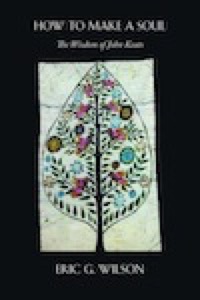
Part literary criticism and part memoir, this empathetic analysis of renowned poet John Keats probes the hidden nature of spirituality. Keats believed the human soul is created. It is on this premise that Wilson builds his scholarly evaluation. The book also serves as a biographical record, incorporating events that impacted Keats with the greatest intensity, crucial points that altered the course of his existence.